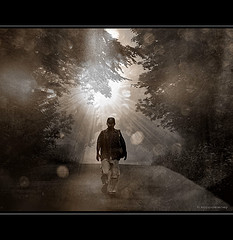 Addiction is
Addiction is
not a lifestyle. It is an experience that shapes the internal story you tell
about yourself. It can define your self-understanding. From inside this
perspective of addiction, we tell ourselves that the physical challenge of
quitting keeps us trapped. But it is more than that. Addiction is defining. Who
would you be without addiction? Who would you be, stripped of this way of
understanding yourself?
Tom, Dan,
Mike and Arjun* started their recovery journeys as people struggling with addiction.
Though they were all in supportive groups, none felt connected to the other
people in the room. Arjun said, “My fear is of being judged as someone who is
lesser.” Tom said, “I kind of want to tell everyone...but there are times I
don’t want to tell anyone.”
At first,
all four looked around their groups and saw people doing well, people with jobs
and families, people making eye contact as they spoke – in other words, people
with whom they had absolutely nothing in common. “I was very suspicious,” Dan
said, “I knew from the way they were talking...they’d used drugs like me, but
they looked so well that I was suspicious.”
In other
words, they started with a huge gap between “us” and “them” and at first the
four men couldn’t see a way to get from one to the other.
All four
struggled to keep attending these groups where they felt they didn’t belong. But
they kept going and eventually they started finding the gap between “us” and “them”
wasn’t the chasm they thought. Eventually all four found themselves identifying
with people in their groups. Tom said, “I can go into a room and say I’m f-ing
crazy and someone will say it’s alright, I’m f-ing crazy too.” Mike said, “as much as family and friends will
support me they don’t know what I’m up against, they don’t know about this
disease of addiction.” But his group did. The group understood. They had been
where Mike was and now they were somewhere new.
This
identification was a major breakthrough: it showed the possibility that
addicted people like Tom, Dan, Mike and Arjun could become people in recovery
from addiction just like everyone else in the room. With this feeling of
belonging, the four men didn’t necessarily know who they would be beyond
addiction, but they could see that the idea of an identity beyond “addict” was
possible.
Whatever was
beyond addiction started to push aside the addicted people these men had been,
allowing them to let go
of things that were old in favor of something new. Tom said, “All of a sudden
and really quite all of the sudden, I don’t see my old friends...It’s that sort
of thing that you kind of, you’re out of the loop.” As they started to release
who they were, the men started to take care of their emerging selves. Tom
started writing, saying, “It is a nice thing to do, writing you know, writing
just about things.”
From
distance, through connection, through renewed self-care, the men were finally
able to move into a place of authenticity. Dan said, “It’s like when you see a
rocket going into the sky and then as it breaks the atmosphere and the bits
fall off it and you just see the fuselage...I’ve seen myself change, I’ve seen
other people looking at me differently and they’re happy that I’ve changed,
there was someone who said to me something, she said you’re growing into yourself.”
Arjun
said, “I’m very capable, I have potential, but I’ve got in my own way...I feel
like I’m doing it, I felt like I’m standing up for myself, I felt like I’m
taking responsibility, I’m looking after me, I’m putting value back in me.”
The
beautiful words of these men along their recovery journeys can guide the rest
of us on our own paths toward a self-understanding that sometimes feels
impossible from within addiction. Distance, connection, self-care and
authenticity: how do they frame your recovery? In the end, it’s up to you. When
you see yourself as recovered or recovering instead of as defined by active
addiction, you will be able to change your life in surprising and joyful ways.
---
*Tom, Dan,
Mike and Arjun (not their real names) told their stories to researchers from Bikbeck
University in London and what we learned from their experiences is published in
this month’s issue of the International
Journal of Mental Health and Addiction.